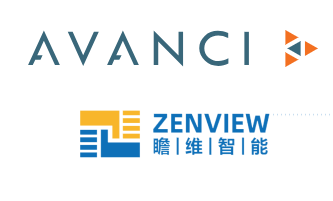Context: Avanci Broadcast (corporate website) is a standard-essential patent (SEP) pool covering digital television (ATSC 3.0, a standard particularly popular in the United States and South Korea). It was launched last year as Avanci’s first non-automotive pool.
What’s new: Yesterday (Wednesday, January 24, 2024), Avanci Broadcast announced (press release) that Shenzhen-based Zenview Intelligence (corporate website) has taken a license. The press release also quotes Shanghai-based NERC-DTV, the National Engineering Research Center of Digital Television, which is an Avanci licensor.
Direct impact: The Avanci Broadcast page lists seven licensees, three of whom are simultaneously licensors (Samsung, LG, Sharp). Pure (i.e., one-way street) licensees now form the majority of licensees. The pool’s market coverage keeps expanding.
Wider ramifications: The announcement quoting both licensee Zenview and licensor NERC-DTV comes on the same day that Nokia and OPPO announced a 5G patent cross-license agreement (ip fray article on settlement), with both parties’ statements making it clear that the value of OPPO’s patent portfolio played a major role, though OPPO is undoubtedly, by virtue of its high device volume, the net licensee between the two. ip fray wishes to underscore that rational and accurate analysis of the global IP market and the related geopolitics requires a 360° view: Chinese companies are patent (and particularly SEP) holders and implementers. There are deals with Chinese companies being (net) licensors and deals with Chinese companies being (net) licensees.
This is “clarification season”: ip fray clarified in an article yesterday that it supports neither side in the political debate over the EU SEP Regulation. Implementers’ representatives have a point that German SEP case law is unfair (ip fray, in fact, deems a purely behavioral approach to SEP licensing unsophisticated). But contributors to standards are right that the proposal or anything remotely like it is just going to do harm without actual benefits. That’s why when it comes to the binary question of whether the proposal should be rejected, ip fray is forced to agree with IP Europe.
The question of Chinese companies’ role in the global IP landscape is as non-binary as it gets. There are Chinese net licensors, Chinese net licensees, and if there’s any company in the world where inbound and outbound licensing are roughly at a level with each other, that’s none other than Huawei.
Unfortunately, the virus of using the Chinese bogeyman in an IP policy context has spread from the United States (where it was particularly contagious during Donald Trump’s (first) term) to Europe. When the EU SEP Regulation was presented, even EU internal market commissioner Thierry Breton essentially argued that the EU had to complicate SEP enforcement because Chinese companies hold ever more SEPs.
The obsession with the Chinese bogeyman leads to various absurdities. Sometimes one will even find members of the same camp leveraging China in different ways, with some portraying Chinese companies as unrepentant infringers and others as aggressive patent monetizers.
In fact, the European Commission itself is making itself ridiculous now in the eyes of SEP policy experts because it’s telling the World Trade Organization (in connection with a complaint against China) the opposite of what it’s not just saying but actually even doing in connection with the EU SEP Regulation. That’s not just hypocrisy. It’s a lot worse than that.
The message to the European Union is: after the EU allowed itself to become marginalized in the digital economy by comparison to the United States and parts of Asia, better get used to China’s role in innovation and IP, a role that is rather multifaceted.
Something is not inherently good or bad because it comes out of China. Bias is not the answer. Stereotypes don’t work when you’re facing a diversity of companies with a diversity of IP strategies and interests.
It’s also wrong to assume that patents are inherently less powerful because they’re asserted by Chinese companies. In fact, no one who’s ever put down Chinese patents has had any argument based on litigation results. Instead, far-fetched theories are adduced that are just agenda-driven. Someone (quite often, just some hired gun) wants to arrive at a certain result for political reasons, and then contrives something.
The issues with German SEP case law have nothing to do with China. Well, not “nothing” because a company named Haier was the defendant in a pair of cases that were decided by the Federal Court of Justice of Germany, but that company’s behavior was an outlier and is not at all representative of Chinese technology companies’ approach to patent licensing. Also, the relevant judicial trend had already started prior to that ruling in a couple of German regional courts.
The EU SEP Regulation’s shortcomings can’t be explained away or justified with “China” either.
From ip fray‘s editorial perspective it’s disappointing that sometimes write-ups on patent policy and litigation topics make some pretty good points and would be worth sharing or referencing, but when the overall thrust just falls into the “Chinese bogeyman” category, they’re sadly ineligible.
There are Chinese licensors and licensees like there are American licensors and licensees or European licensors and licensees. Yesterday’s independent announcements that just happened to coincide are illustrative of the Chinese spectrum.

